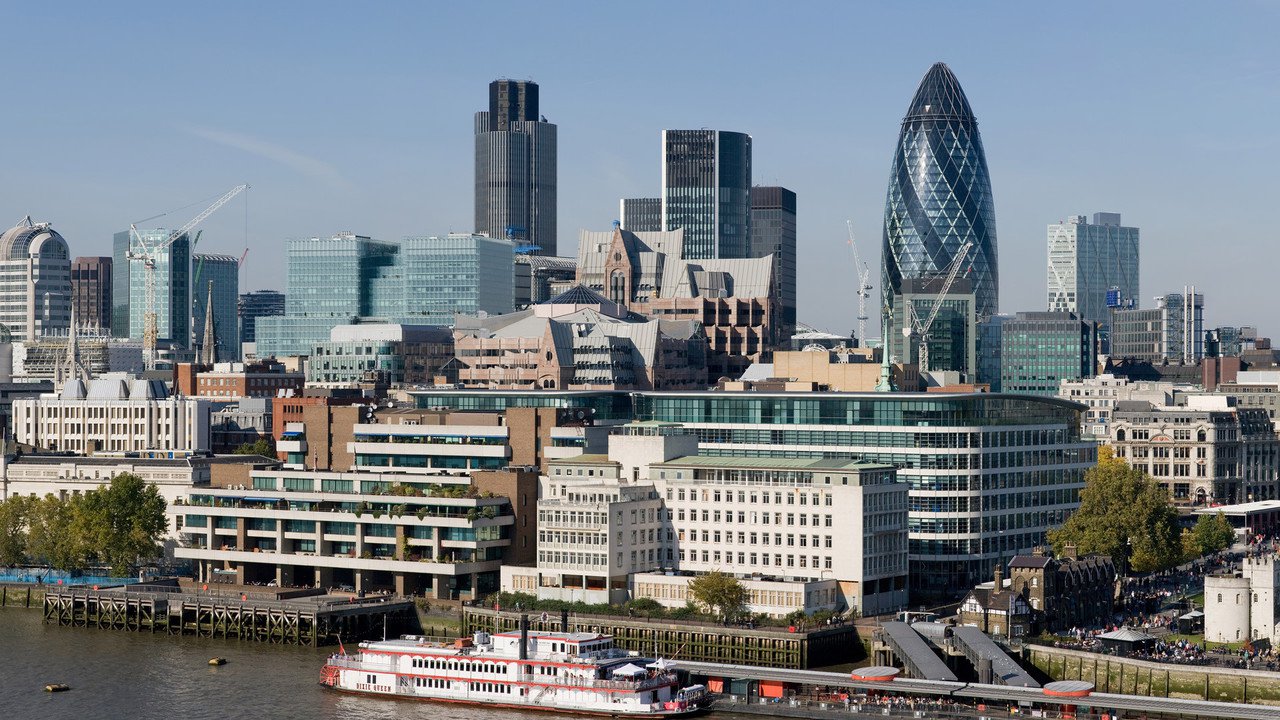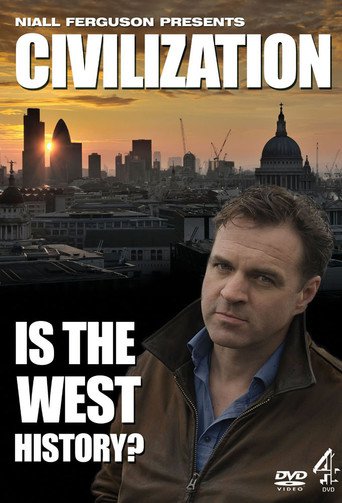

Well Deserved Praise
... View MoreThis Movie Can Only Be Described With One Word.
... View MoreGreat example of an old-fashioned, pure-at-heart escapist event movie that doesn't pretend to be anything that it's not and has boat loads of fun being its own ludicrous self.
... View MoreIt is encouraging that the film ends so strongly.Otherwise, it wouldn't have been a particularly memorable film
... View MoreGot this from the Library. I didn't pay attention and thought I was getting a book, but this was pretty entertaining. It is six episodes and in each he covers what he calls Western Civilizations "Killer App's" - the six things he believes lead to the accent of western civilization. I thought the episode on Medicine was a bit weak, but he did delve into medicines dark cousin - eugenics and the nightmares that crap created. Thought-provoking. I would highly recommend it for any of my fellow uber-geeks.
... View MoreThis is an insightful six-part series. Professor Niall Ferguson tells it like it is and gives a unique insight on why the West's development was superior to that of other places. The documentary is packed with visual goodies, for example shots of buildings and landscapes including from the air, to take you on a world tour.I particularly liked the many scenes of North American suburbs in comparison to South American rural villages to show the contrast in wealth between the two. Ferguson's voice is well suited to narration.Here's a general outline of his ideas:Part One: CompetitionMany think it's the brute force of western technology that gave rise to its expansion and colonisation of the world. But in fact it was a combination of factors more to do with ideology, especially of Northern Europe with its liberalism and capitalism. In the 1200 - 1400's China was the world's most advanced civilisation with things like gunpowder, printing and paper, and huge ocean-going vessels that went to Africa and brought back animals. But the unified kingdom of the Ming dynasties meant that innovation and progress in technology and military affairs wasn't necessary, for they had no adversaries. The Chinese had strong warriors, but they didn't need to develop, as they had subdued the Mongolian hordes to the north. Whereas, Europe consisted of many smaller entities who competed and fought with each other, thus constantly improving their technology so as to not fall behind their neighbours. And the Europeans had a thirst for economic opportunities, especially overseas, that the Chinese didn't have."The Chinese have all they need" said the Chinese Emperor of the time -- and they did, for it was a benevolent dictatorship -- but it meant they went nowhere fast in terms of world exploration.Part Two: ScienceThe Islamic world's lack of separation of church and state put it at a disadvantage to the West. The Ottoman empire had rulers whose main preoccupation was physical pleasure and the suppression of printing based on religious ideas. Meanwhile, in Europe leaders like Frederick the Great thought that he should work for the good of the people instead of preoccupying himself with worldly pleasures. Frederick the Great encouraged a secular government and the spread of scientific ideas, transmitted through printing, which would allow the West to overtake the Ottomans in technology.Part Three: Land-Owning DemocracyNorth and Latin America took two different paths because in English North America people could keep the fruits of their labour -- things like land and the right to vote. On the other hand in Spanish/Portuguese Latin America people always worked for others and owned nothing. As a result the people who could keep what they had worked for (the "American dream") worked much harder and maintained a better standard of living. Whereas people who always worked for someone else, for some big kahuna or other, only did the minimum they needed to to fulfil their duties and then they rested.Part Four: MedicineFocuses more on Africa and Europeans dealing with diseases, health and other issues for both Africans and Europeans there and around the world.Part Five: ConsumerismThis one takes the focus into the 20th century with the focus on clothing, fashion and the culture of the West infiltrating into the East. Ferguson shows his insight once again in this episode culminating in his revelation that he predicted that the Berlin Wall would fall before it did (but the newspaper he submitted his story to didn't publish it). Ferguson points out clothing as having a central role in the industrial revolution and, plotting its fashion spread, it marks the West's influence in the East from East Germany to China.Part Six: The Work EthicSometimes religion can hold back a people's development, like the Muslims did centuries ago when it came to science and education. And in many religions it was better to be of humble means and give one's surplus wealth to the church. But in America a new denomination of Christianity flourished that associated hard work and owning riches and property with piety. Protestantism helped give rise to the work ethic that made America great.
... View MoreI have watched this short series from it's beginning, and quite enjoyed it.The programme took an often lateral view into the development of some aspects of history, and how they interacted across continents and between cultures.Some of the ideas may have been a tad over-stated. One or two points had a hint of cliché in their presentation. Yet I found the presenter himself refreshingly candid and non-judgemental in regard to the ideas he put across. His chatty and informal manner worked well. And very seldom did he repeat himself; there was little suggestion of packing-out the programme - unlike the BBC's 'Wonders Of The Universe'.We explored the past, we crossed cultures and continents, visiting exotic locations, and heard innumerable little snippets and anecdotes about the main-players of the past. For example; on the news we hear how religious belief in China is vigorously persecuted, whereas the programme claimed that Christianity is rampant in many parts, being openly practiced and tolerated.I also thought that there was more than a grain of truth to a claim that the decline of the west may be synonymous with a loss of self-belief and a denial of those ideals that once made our culture supreme - a claim that probably set-off resentment bells amongst the Guardianistas and sundry left-wing revisionists who are foremost in decrying our past achievements. As if life before New Labour were a spoil-heap of shame.All in all, a thought-provoking series.
... View MoreHorribly presented with facts that might be critical of Western civilization often glossed over this feels more like a "puff piece", a feel good series for the benefit of those who feel intimidated by the rise of the 'Developing World'.In episode one the causes and result of the Opium Wars are almost completely ignored with the presenter claiming that the Chinese had a unique weakness for opiates (because there is no substance abuse in 'Western nations'?). The presenter failed to state that the British had increased supply (from British ruled India) and thus substantially lowered the cost.I have no doubt that there are more fallacies and considerable omissions to be found throughout the series but I shan't waste my time in discovering them. For a historian to put his name to such shoddy work is embarrassing. For that same historian to be so arrogant in his presentation of the work makes for cringe inducing television.In short, this makes for sad viewing - an indictment of the state of British TV, media as a whole and society. One final desperate grasp for bygone glory days on a dying medium - two cultural failures for the price of one.
... View More